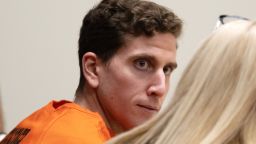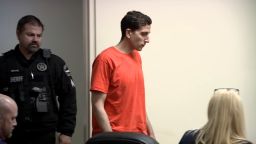One of the surviving roommates in a stabbing attack that left four University of Idaho students dead has agreed to speak to defense attorneys for suspect Bryan Kohberger after initially resisting efforts by his legal team to compel her testimony.
In a court filing made Wednesday, obtained by CNN affiliate KRNV, an attorney for Bethany Funke agreed to make Funke available for an interview with defense attorneys in Reno, Nevada, in place of appearing at a preliminary hearing scheduled for late June in Idaho.
Previously, Kohberger’s legal team had asked a Nevada court to compel Funke to travel to Idaho and testify as a witness, arguing her testimony would be exculpatory and her “information is unique to her experiences and cannot be provided by another witness.”
Funke, who returned to her hometown of Reno following the killings last November, had fought the subpoena. Her attorney, Kelli Anne Viloria, filed a motion to quash it, arguing “there is no further information or detail pertaining to the substance of the testimony, its materiality, or the alleged exculpatory information of Ms. Funke or why it would be entertained at preliminary hearing.”
It is not known at this point when Funke will speak to defense attorneys, what information she has, and whether it could help Kohberger.
Kohberger has been charged with four counts of first-degree murder. If found guilty, he could face the death penalty.
Kohberger, 28, is charged in the fatal stabbings of Kaylee Goncalves, 21; Madison Mogen, 21; Xana Kernodle, 20; and Ethan Chapin, 20.
The discovery of the bloody crime scene on November 13 shattered the sense of security in the small college town and frayed the nerves of students and residents as the search for a suspect ensued.
Kohberger has yet to enter a plea and is being held without bail in the Latah County Jail in Idaho following his December arrest at his parents’ Pennsylvania home. A court order prohibits all parties from commenting beyond referencing the public records of the case.







